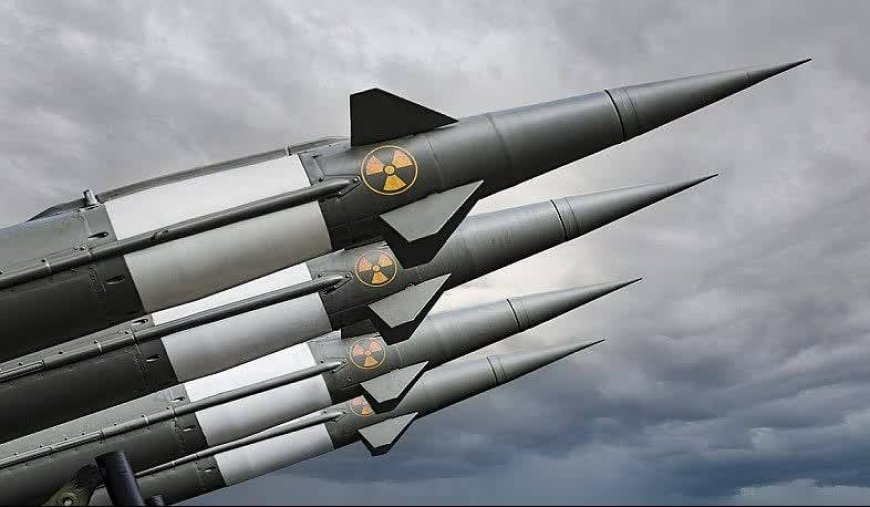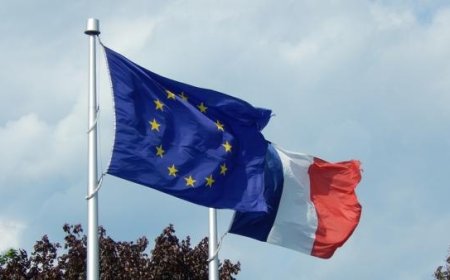The European Security Puzzle: Poland's Bid for Nuclear Hosting
The European Security Puzzle: Poland's Bid for Nuclear Hosting

In an ominous development, Polish Prime Minister Mateusz Morawiecki announced on June 30, 2023, that Poland is keen on hosting nuclear weapons as part of NATO's nuclear sharing policy. This decision comes in response to the deployment of Russian nuclear weapons in the Kaliningrad region and Belarus, a move that has raised concerns about regional security. Soon afterward, Jacek Siewiera, the head of Poland's security bureau, expressed Warsaw’s keen interest in utilizing its upcoming F-35A Lightning II aircraft, scheduled for deployment between 2024 and 2025, for the purpose of accommodating free-fall nuclear bombs, specifically the B61 variant. This move aims to align Poland with NATO's arsenal of dual-capable fighters and enhance its capabilities in terms of nuclear deterrence.
Russia's decision in June 2022 to deploy short-range ballistic missile systems and nuclear warheads in Belarus was likely intended to showcase seriousness and pressure NATO to reduce its support for Ukraine. The proximity of these Russian nuclear weapons to Poland has heightened the urgency of Poland's long-standing pursuit of a more active role in NATO's nuclear sharing mechanism, an endeavor that has been ongoing since 2014.
Poland's renewed efforts to join NATO's nuclear arsenal in 2022 are driven by several factors. Firstly, there is a desire for a stronger military to enhance Poland's defense capabilities. Secondly, there is growing public support for the deployment of nuclear weapons, as evidenced by a survey conducted in October 2022, which revealed a significant increase in Polish citizens agreeing to the deployment of B61 bombs compared to previous years. The current Polish government aims to align with public opinion and intends to leverage this opportunity for the upcoming election campaign. Consequently, it can be said that this action and effort by the government hold more political than military significance.
However, the decision to host nuclear weapons within NATO involves a complex and strategic process. The Nuclear Planning Group, chaired by the Secretary General, is responsible for nuclear decision-making in NATO. Poland must convince the members, particularly the United States, by developing a deterrence strategy for NATO and emphasizing its importance. However, the military significance of deploying weapons in Poland is a subject of serious debate. Given that Poland is within range of Russian missiles and planes, and considering the approach of permanent deployment of NATO nuclear weapons in host countries, choosing Poland may not be the most logical option. In the event of a potential war, Russia could easily target and diminish a portion of NATO's deterrence power, dealing a significant blow to the alliance's defense structure.
To gain approval for hosting nuclear weapons, Poland aims to increase its involvement in NATO's nuclear exercise programs and participate in logistics. Poland also seeks to convince the United States and other NATO members that it can serve as a potential base for NATO's dual-capable aircraft, thereby enhancing its deterrent capabilities. However, achieving this goal will require either reaching a direct agreement with the United States or securing the consensus of NATO members, both of which will be challenging for Poland, considering NATO's tendency to remain silent about important decisions and the United States' practices.
It is crucial to consider the potential implications of Poland's pursuit of hosting nuclear weapons. If Poland were to become a nuclear power, it would likely be seen as a provocation by Russia, leading to a strengthening of its nuclear bases. Additionally, the European military balance would be significantly challenged, particularly if the United States were to independently reach an agreement with Poland without coordinating with other NATO members. This ambitious action by Poland could have serious consequences for the future of the European security structure and potentially lead the continent towards military competition.
In conclusion, Poland's decision to pursue hosting nuclear weapons as part of NATO's nuclear sharing policy has strategic implications and dangerous ramifications that must be carefully considered. While Poland seeks to strengthen its defense capabilities and align with public opinion, it must navigate a complex decision-making process within NATO and address concerns about the military significance and potential risks associated with hosting nuclear weapons. The potential implications for regional stability and the European security structure should not be overlooked.













































